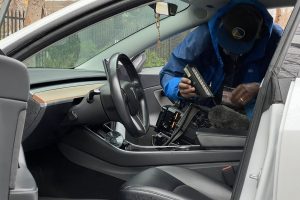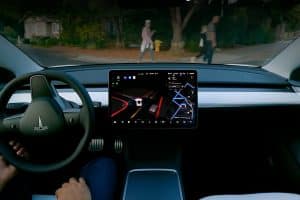The Bipartisan Infrastructure Bill, which could broaden the United States electric vehicle market with budgetary support for charging stations and State-owned EVs, has been finalized. The $1 trillion bill was unveiled by U.S. Senators earlier today. The 2,700-page document could be voted on as early as this week by the Senate, who will ultimately approve or deny the massive spending campaign geared toward repairing and upgrading America’s infrastructure.
“We haven’t done a large, bipartisan bill of this nature in a long time,” Senate majority leader and New York Democrat Chuck Schumer said. Schumer clarified that the vote could take place in a few days, and the bill could be passed by the end of the week.
While the $1 trillion campaign is set to address several shortcomings in the U.S. infrastructure, the bill has the attention of electric vehicle owners, drivers, and supporters. Some of the budget is set to be spent on the broadening of the EV charging infrastructure. Currently, U.S. EV charging stations are not readily available in every convenient location, and the bill could put an end to the small number of publicly available chargers in the country. The largest charging infrastructure is owned by Tesla, the company that also holds the largest concentration of EVs by manufacturer in the country. Tesla’s charging stations have been installed in over 25,000 locations globally but are exclusively available to owners of their vehicles. This is set to change shortly, as the company’s CEO Elon Musk stated that third-party manufacturer EVs would have access to the company’s extensive charging network before the end of the year.
However, this only means that wait times and long lines will increase at the company’s Superchargers. Musk stated on Tesla’s recent Q2 2021 Earnings Call that owners of other manufacturers will have to adopt a time-based pricing system that will limit congestion.
With that being said, EV owners across the U.S. would benefit from the expanded charging network, which would likely incentivize non-EV owners to consider switching to an electric powertrain. $7.5 billion will fund the manufacturing and installation of EV charging stations, with an additional $2.5 billion for zero-emission buses, $2.5 billion for low emission buses, and $2.5 billion for ferries.
The upcoming Senate vote could be a preview of what is to come for the $3.5 trillion package that Democrats will unveil later. That bill will attempt to tackle shortcomings of “human infrastructure” through child care, tax breaks, and healthcare programs that will be available to many Americans. It will be more ambitious to pass, however, as Republicans strongly oppose the spending plan.





